#bettelheim
Explore tagged Tumblr posts
Text
La festa dell'uovo

Anche la Pasqua, come il Natale, era inizialmente una festa soprattutto religiosa, divenuta col tempo un’importante festa dedicata ai bambini. Come mostrano il suo nome in molte lingue e i riti a essa connessi, la Pasqua possiede profondi significati simbolici in relazione alla nascita, alla rinascita e alla fertilità. I termini tedesco e inglese derivano dal nome della divinità germanica Ostara, dea della primavera e della fecondità. Suo contrassegno era l’uovo e suo messaggero la lepre; fu questa l’origine dell’uovo di Pasqua e della Lepre di Pasqua. L’uovo occupa un posto di rilievo nei miti della creazione di tutto il mondo a significare la nascita e già a partire dal IV secolo ne è attestato il collegamento con le cerimonie pasquali. Nel XII secolo la chiesa cattolica diede la sua legittimazione a tale collegamento introducendo la Benedictio Ovarum (*), la benedizione delle uova, e autorizzandone un uso particolare nelle festività pasquali. Da allora l’uovo ha sempre occupato un posto centrale nella celebrazione della Pasqua, dalla tradizionale corsa delle uova, alla caccia alle uova da parte dei bambini, all’uso di regalare uova riccamente decorate. La lepre, come poi il coniglio, si prestava naturalmente a simboleggiare la fertilità, per la sua nota prolificità. Il primo riferimento in lingua tedesca alla lepre in rapporto all’uovo pasquale risale al 1572, quando peraltro l’usanza era da lungo tempo affermata.
(*) Libriaco: Propenderei per una Benedictio *Ovorum*!
B. Bettelheim, [A good enough parent, 1987] Un genitore quasi perfetto, Milano, Feltrinelli 2014 [Trad. A. Bottini]
Immagine: Petrit Halilaj e Álvaro Urbano, Ensemble lunare per mari in rivolta - Particolare. Dalla mostra Thus waves come in Pairs, Ocean Space. Venezia, Chiesa di san Lorenzo, 2023. Foto: per gentile concessione di Robyn Yeary.
9 notes
·
View notes
Text
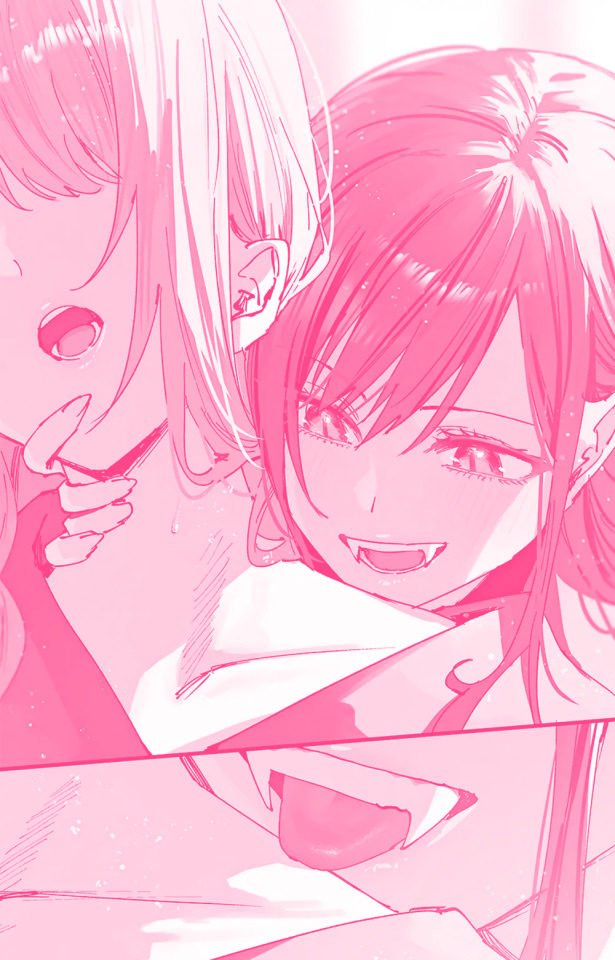
♡ Girls x Vampire ♡
#Girls x Vampire#Luluna Von Bettelheim#Aihara Wakana#Luluna x Wakana#manga#pinkmanga#mangaedit#yuri#yurimanga#yuriedit#shoujo ai#shoujoaiedit#gxv - chapter 01
294 notes
·
View notes
Text
Since I am on the topic of these people that get a lot of criticism for their take on fairytales but still deserve to be kept around due to their influence, I want to briefly evoke Bruno Bettelheim's book "The Uses of Enchantment", known in France as "Psychanalysis of fairytales".
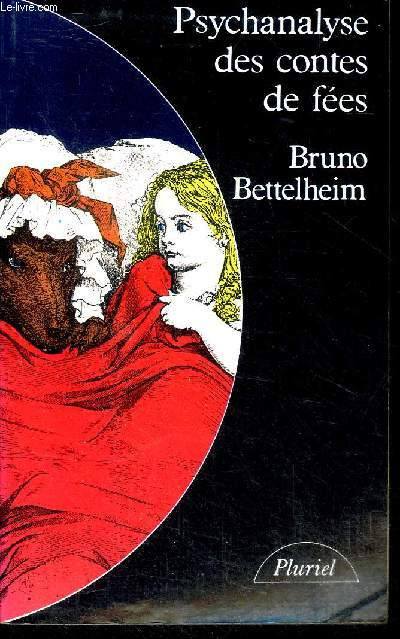
Note that I will not speak of the book itself or the reception of the book in English-speaking countries, but I want to talk about its reception in France and an impact it had on France. Today, numerous elements of the book have been debunked or criticized, coupled with many people misunderstanding the intentions of Bettelheim or misinforming about the context of the book or how it had to be read. As a result, today there is a tendency to crap on this book or laugh about it when we talk about fairytales analysis. However this book had a great importance in France when it came to "save" fairytales.
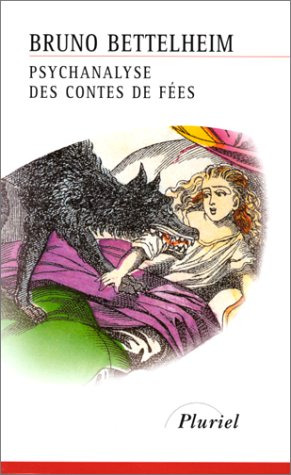
Before going into the general, as a brief piece of personal experience - which isn't exclusive to me, as others also shared this. This book actually was what got me into the analysis and study of fairytale. Or rather, when I read it as a pre-teen, it made me discover that... fairytales could have depths. Fairytales could have hidden meanings behind being simple children stories. It made me consider how these stories could be taken and reinterpreted as so many allegories and metaphors, it opened my eyes to a certain visceral, psychic, social aspect of these tales, and without this book I certainly would not have been into fairytales as I am today.
Not that this book is the ultimate resource of fairytale analysis - and the entire process of a psychological reading of fairytales is someting that exists but should not be taken into account when trying to explain them (fairytales being the produce of the encounter between literature and folklore). However, this book stayed a door-opening key for me, outdated maybe, overthinking stuff I guess, but that at least allowed me to glimpse into the "great beyond" behind these stories.
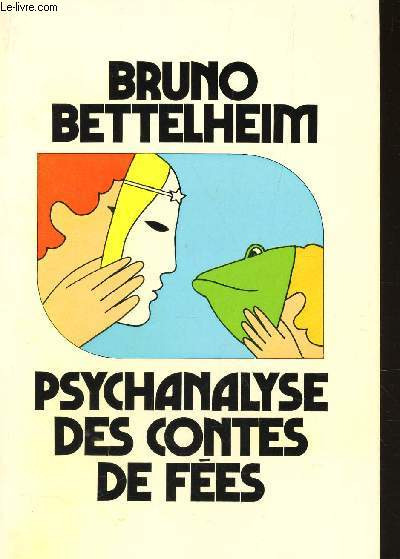
And now for my actual point... How Bettelheim's book saved fairytales in France. This is something I learned when studying the life and work of Pierre Gripari - in a book called "Pierre Gripari, un passeur d'écritures" by Inna Saranovska.
When Bettelheim's book reached France in the late 70s, fairytales were in a bad spot when it came to cultural authorities. Already fairytales had been reduced in people's mind to simple, naive children stories only good for making American cartoons (cough cough, Disney). But those of Perrault were still evoked and studied in schools (little schools for little children) because it was part of the heritage of France, of French culture, and the evolution of French literatue...
However what happened in the 70s? The very serious project of just burying fairytales was brought forward. The talks by politics and school authorities were simple: let us stop teaching fairytales to children in school, let's remove fairytales from school libraries, we do not have any use for them anymore, let them be forgotten. On one side, as I said, there was a discredit due to them being seen as silly children story, and thus no real pedagogic or "useful" chilren literature. But on the other side, there were very concrete and serious political business involved - fairytales were seen as antithetic, and opposed, to the principles of the modern Republic of France. Fairytales were seen as backward antiquities that went against what a great democratic nation should be. For example, people really did took issue in the fact that fairytales depicted monarchies, with kings as absolute authorities, and where a happy ending meant to end up prince or princess. For them, it was literaly teaching children to favor and idealize monarchy when they should rather learn about democracies and republics, and while it might seem silly today, it was serious back then and what almost led to the complete erasure of fairytales from school programs.
But then came Bettelheim's book. A book which proved to these folks that fairytales could be of a deep, psychological, social use to children. A book which taught these authorities to see beyond the "silliness" of these children stories or the "backward social message", and which told them how these stories could contain and express the deep fears, the secret desires of children, and help them grow up and deal with familial, social relationships. The book was a best-seller in France, and it completely changed the higher-ups opinion, and convinced tem fairytales should indeed be maintained in school - because fairytales were now "serious" due to being part of the very serious and praised domains of psychology and psychanalysis (which was all the fad and rage in the second half of the 20th century France).
And as such - no matter what you might say about the book's uality today - it can still be thanked for actually "saving" fairytales in France.
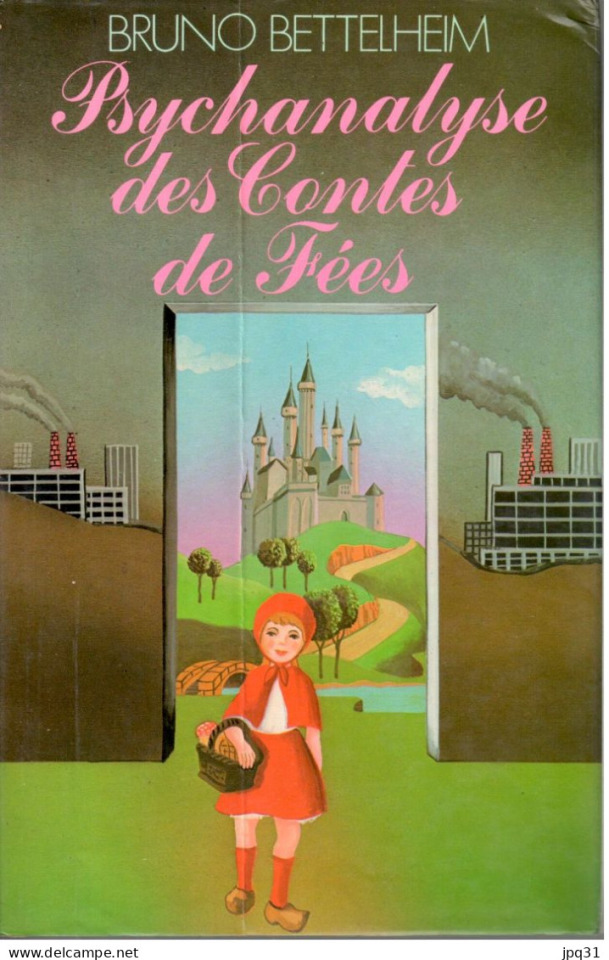
#fairytales in france#reception of fairytales#the uses of enchantment#bruno bettelheim#fairytale analysis#history of fairytales
262 notes
·
View notes
Text
Diamonds, Toads, and Dark Magical Girls
According to Bill Ellis in "The Fairy-Telling Craft of Princess Tutu: Meta-Commentary and the Folkloresque," the fairy tale of Cinderella can be seen as one of the earliest examples of the transformation sequences/henshin seen in magical girl anime, particularly in how the title character is given items that help her achieve a goal, usually given to her by a magical being (her mother's spirit in a tree, a fairy godmother, etc.).
Thinking again about the connection between magical girls and fairy tales--even if they aren't as meta as Tutu, many magical girls do use imagery and ideas from European fairy tales (Sailor Moon alone has references to Hans Christian Andersen and Charles Perrault)--I wondered what other character types from the genre may have some precedent in fairy tales. Then I started thinking about the Dark Magical Girl character.
Not every magical girl story has a Dark Magical Girl, but they do crop up in a lot of works. To name a few, there's Fate Testarossa from Magical Girl Lyrical Nanoha, Homura Akemi from Puella Magi Madoka Magica, Rue/Kraehe from Princess Tutu, and countless others that would be too numerous to name. In general they tend to be more cynical, darker counterparts to the main protagonists, who tend to come from relatively more stable environments. Whatever magic they possess also may be more sinister, at least initially.
Tying in somewhat to the story of Cinderella is the Aarne-Thompson-Uther Index fairy tale type "The Kind and Unkind Girls" (ATU 480). Many of the stories of this type involve a rivalry between two stepsisters, one being favored by the stepmother due to being the latter's biological daughter. The general idea in most versions of the tale is that both girls encounter a magical being at separate points in time. The kind girl helps the magical being in some way, at which point the magical being gives her a magical ability or magical presents. Meanwhile, the unkind girl refuses to help the magical being and is cursed in some fashion, or, worse, killed. The kind girl meanwhile usually ends up marrying a prince, or a similar character. One of the more popular versions of this story, "Diamonds and Toads," has the kind girl gain the ability to have a jewel or flower fall from her mouth when she speaks, while the unkind girl is cursed to have toads and snakes fall from hers. And while the kind girl does marry a prince, the unkind one is kicked out of her house and dies alone in the woods. (Insert something about Revolutionary Girl Utena's comment about how a girl who cannot become a princess is doomed to be a witch.)
Typically in these fairy tales, the unkind girl is never shown to be a real threat to the kind one; the ultimate threat is the stepmother, who uses her daughter as a means to an end. In contrast, Dark Magical Girls tend to have, well, magic that helps them attack the magical girl protagonist. In this regard, they're the Heavy in the plot, while the witch/mother-like figure/real enemy waits in the background (as is the case in a lot of magical girl shows--the Raven and Rue, Precia and Fate, Fine and Chris in Symphogear etc.). Sometimes the Dark Magical Girl will be a major threat, though--like the Princess of Disaster in Pretear (who is loosely-inspired by the Evil Queen in Snow White).
In The Uses of Enchantment: The Meaning and Importance of Fairy Tales (1976), Bruno Bettelheim argues that the stepmother as a character is a way for children to process the negative traits of their own mothers, while still idealizing the good qualities of them. With that in mind, the unkind sister and the Dark Magical Girl can be viewed as a way of processing/externalizing the negative traits that a girl can have, being cruel, rebellious, and uncaring. They also embody their fears, too--the fear of being alone, rejected, and doomed to fail.
Of course, nowadays, Dark Magical Girls have a tendency to be redeemed and reconcile with/befriend the main magical girl, something the kind and unkind girls never seem to do in the fairy tales. Maybe it's just emblematic of society deciding that killing a girl off for being a little rude is a bit unfair. She's just a kid trying to find her place in the world, too, after all.
#magical girl#magical girl lyrical nanoha#puella magi madoka magica#princess tutu#senki zesshou symphogear#dark magical girl#fate testarossa#homura akemi#rue kuroha#princess kraehe#chris yukine#cinderella#diamonds and toads#kind and unkind girls#fairy tales#hans christian andersen#brothers grimm#charles perrault#bruno bettelheim#the uses of enchantment#random thoughts#text#read more
121 notes
·
View notes
Text
thinking about them


55 notes
·
View notes
Text
"You" (the TV show) is unrealistic because irl Joe Goldberg would've gotten obsessed with some shawty on onlyfans and paid hundreds for vids of her using a Dildo Of The Week that he ordered from her Amazon wishlist. as god intended
#LEST WE FORGET he was so much more of a perv in the booksss#if ppl want me to compare the books w the show i can bc im reading em rn just reply or rb this post#you#you netflix#you lifetime#joe goldberg#guinevere beck#love quinn#benji ashby#benji you#kate lockwood#you season 5#you season five#you s5#will bettelheim#penn badgley
19 notes
·
View notes
Text
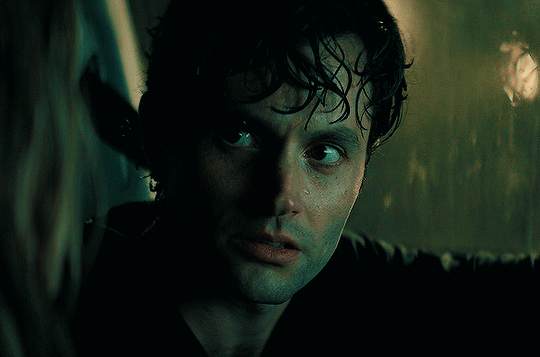
Oh Joe, you sweet, psychopathic, hopeless romantic... I literally hate and adore you so much that it is unbelievable.
~◇~
36 notes
·
View notes
Text
PS: I love Will Bettelheim, but fans treat him like a cinnamon roll. I know he's not TRYING to be a terrible person, but if other characters can catch shit for enabling Joe long after knowing what Joe is, Will absolutely deserves some hate for his complicity. There's no denying at this point that Joe has killed multiple people after letting him go, and yet Will still helps him with his passports and helps him to contact a son he's not supposed to speak to. Will's lucky Joe WAS caught, otherwise he would have had so much blood on his hands by proxy.
16 notes
·
View notes
Text
um.. HELLO??






he looks like Dylan O’Brien in the middle
#so nobody was gonna tell me this mf in a band!?#oh god the hair is killing me#his singing voice😫#penn badgley#MOTHXR#joe goldberg#will bettelheim#jonathan moore#gossip girl#dan humphrey
128 notes
·
View notes
Text

The Uses of Enchantment, Bruno Bettelheim
Ch: The Animal-Groom Cycle of Fairytales
#bruno bettelheim#the uses of enchantment#fairytales and folklore#fairy tales and folklore#bluebeard#la barbe bleue#charles perrault#anmolreads
3 notes
·
View notes
Text
So... recently I've been watching a lot of Netflix's YOU! And right in time for spooky season! Even though he's technically a serial un-aliver, Joe is definitely my favorite character!

#joe goldberg#joe goldberg fanart#joe goldberg you#you#you netflix#netflix#netflix you#YOU#william bettelheim#jonathan moore#netflix series#you on lifetime#young artist#digital art#digital doodle#digital drawing#digital illustration#fanart#comfort character#comfort characters#don't come at me lol#new f/o#f/o stuff#f/os#f/o#f/o art#villain f/o#villain fictional other#f/o community#f/o gush
8 notes
·
View notes
Text
3 notes
·
View notes
Text
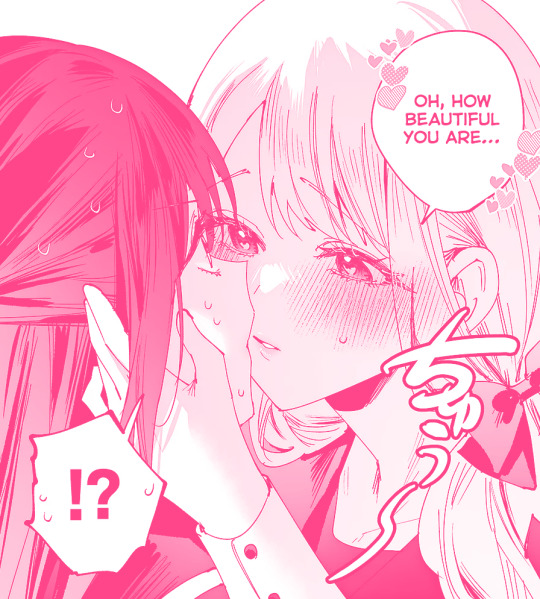
♡ Girls x Vampire ♡
#Girls x Vampire#Luluna Von Bettelheim#Aihara Wakana#Luluna x Wakana#manga#pinkmanga#mangaedit#yuri#yurimanga#yuriedit#shoujo ai#shoujoaiedit#gxv - chapter 06
111 notes
·
View notes
Text
I’m re-watching “You” for the 4th or 5th time and holy shit! Penn Badgley really didn’t do us any favors playing a serial killer…
Like how can I hate Joe when he’s soooo good looking!?! 😫
And Penn’s hands!
Ummmm…Joe Goldberg? Choke me?…please? 🤭🥹
God I need help…👀
#You#joe goldberg#will Bettelheim#Jonathan Moore#penn badgley#😫#i have a problem#i’m just a girl#hah that’s interesting because i ummm…
6 notes
·
View notes
Text
I actually have like. A few web weaves for SPN planned once I’m finished
#evie rambles#but don’t hold me to then who knows when i’ll finish#finished reading bettelheim and heuscher#and marina warner and. well tatar books are so fucking hard to find pisses me tf off but whatever#and yk sexton and carter fairytale retellings both which i enjoyed#but mainly it’s lrrh for mary and sleeping beauty for sam#i could do hansel and gretel for sam&dean but yk still mulling that one over#and eros and psyche with johnmary MAYBE i haven’t wrapped my head quite around it yet#apart from the fairytale ones i want to have a crack at demon blood as a csa allegory#one with dean as like. a hero/prince in utena. but like his very complex relationship with that role like deconstruction yet reaffirmation#and some other literary references like frankenstein or minotaur with jack#ALSO neeeed to try my hand at amv making….#the sleeping beauty one makes me hesitate becausei fear it’ll get misinterpreted or derailed. oh well
4 notes
·
View notes
Text

my pookie, mr. 8 seconds :) <3
#art#artwork#drawing#illustration#digital#fanart#you#you series#netflix you#you netflix#joe goldberg#will bettelheim#jonathan moore#penn badgley
18 notes
·
View notes